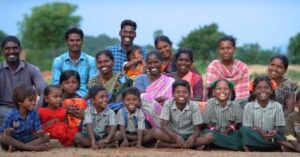How Pre-Teen and Adolescent Girls in Indian Slums Are Raising Their Voices against Patriarchy
Vacha foundation with centres in many slums across Mumbai and Gujarat is helping young girls speak up against patriarchy in a very strong and inspiring way.
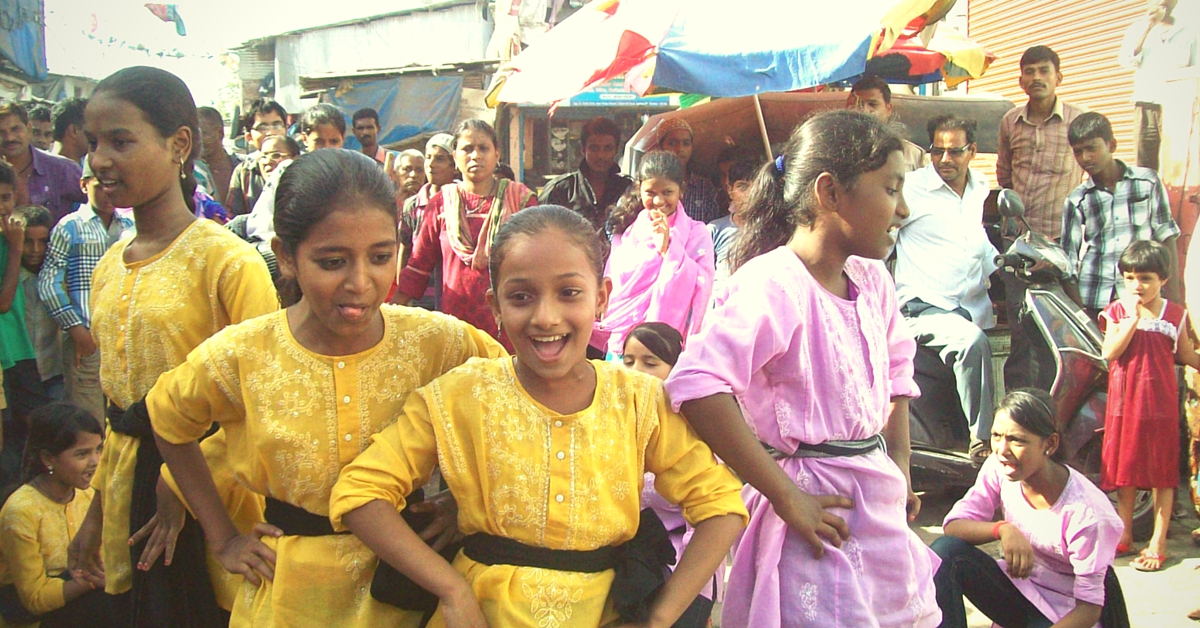
Vacha foundation with centres in many slums across Mumbai and Gujarat is helping young girls speak up against patriarchy in a very strong and inspiring way.
“Here comes tension/girls’ tension/Doing housework/wanting to study… Come, do come/Lose yourself in Vacha/There goes tension/Girls’ tension has gone. (A translation of the Hindi poem, ‘Ladkiyon ki tension’ from the book ‘Bole Kishori’ brought out by Vacha Trust.)
Meeting girls from Mumbai’s slums whose lives have been touched by Vacha, the women’s resource centre started by veteran feminist Sonal Shukla and her team, it’s impossible not to come away smiling. No wonder, at the end of over two decades of working among pre-teen and adolescent girls, Shukla feels exhausted but optimistic.
“When you experience their raw passion to do the right thing, their great enthusiasm to learn new things, you cannot be pessimistic,” she says.
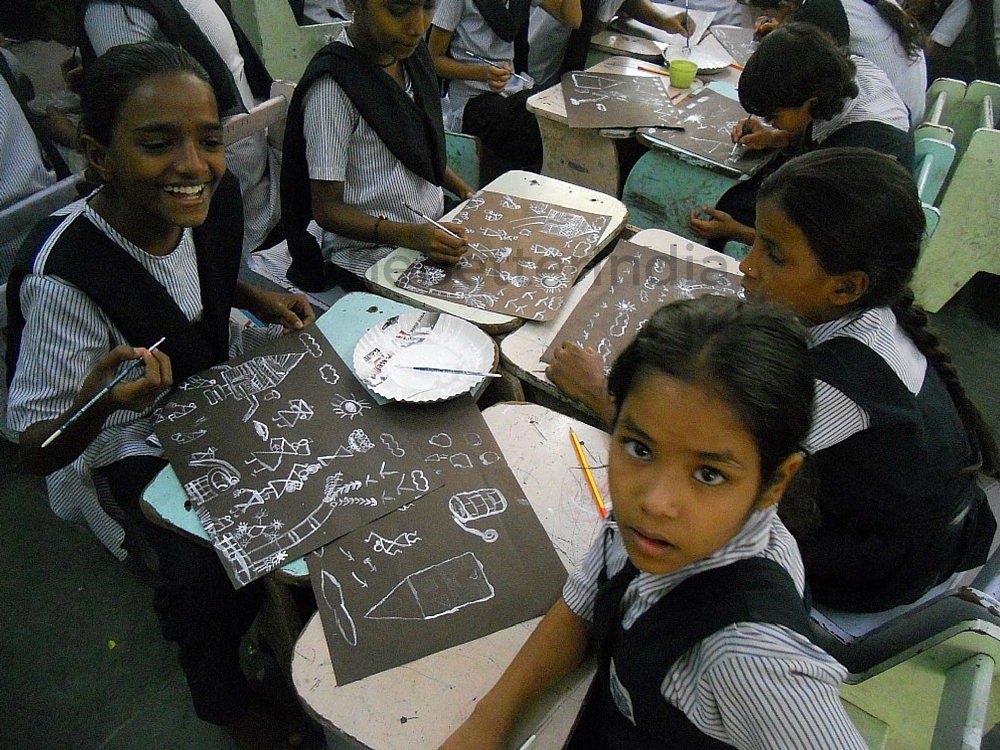
Starting off as a library in 1987, Vacha expanded in 1995 to work with girls studying in municipal schools, where Mumbai’s underprivileged send their kids. Housed in a municipal school, the Vacha office became a space where girls came to experience a freedom they could not at home, not only because their homes were often small, air-less rooms, located at the edge of a marsh or garbage dump; although that too was a factor. Nischint Hora of Vacha remembers the excitement when they provided second-hand cycles for girls to ride in the school’s compound: “They felt they were flying!”
Vacha means “speech/verbal expression/articulation” in several languages and for these girls, the organisation has created a space for them to be themselves and learn to speak up. Vacha chose to work with girls in their early adolescence because, according Medhavini Namjoshi, the executive director, it is an age when girls are constantly being told what not to do.
“There has to be somebody to tell them you can do so many things”, be it reading, writing, drawing, taking photographs or dancing. Linked to this was the objective of imparting the feeling of self-worth, that “being a girl is not depressing”, to counter what they were made to feel at home.
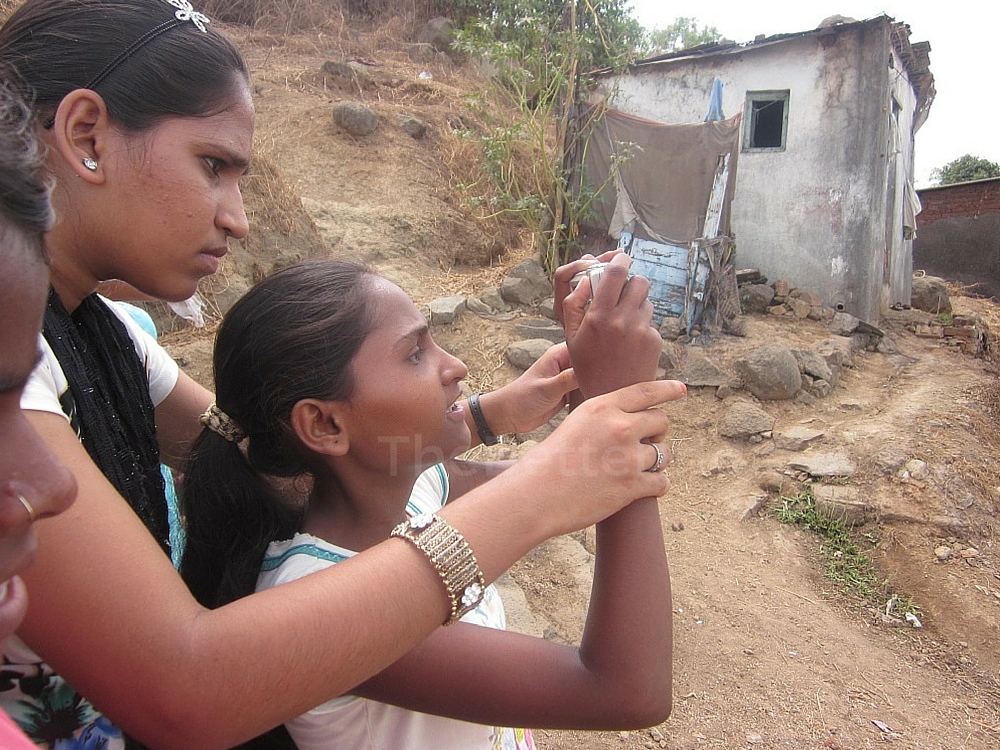
Moreover, the idea was that if they are empowered when they are young, they wouldn’t take injustice lying down when they grow up. Truly, Vacha girls aren’t willing to take nonsense and this is evident when one sees their creative expressions, particularly their poems and paintings.
Most of their poems, which they read out proudly not just in front of their families but also their neighbours during Independence Day and Republic Day celebrations, refer not just to the discrimination they face at home and on the streets but also convey a determination to fight back.
A few years back, at the Independence Day programme the placards they displayed as they walked through their bastis were against “eve-teasing”. All of them showed a readiness to confront “eve-teasers”, a declaration they weren’t afraid to make.
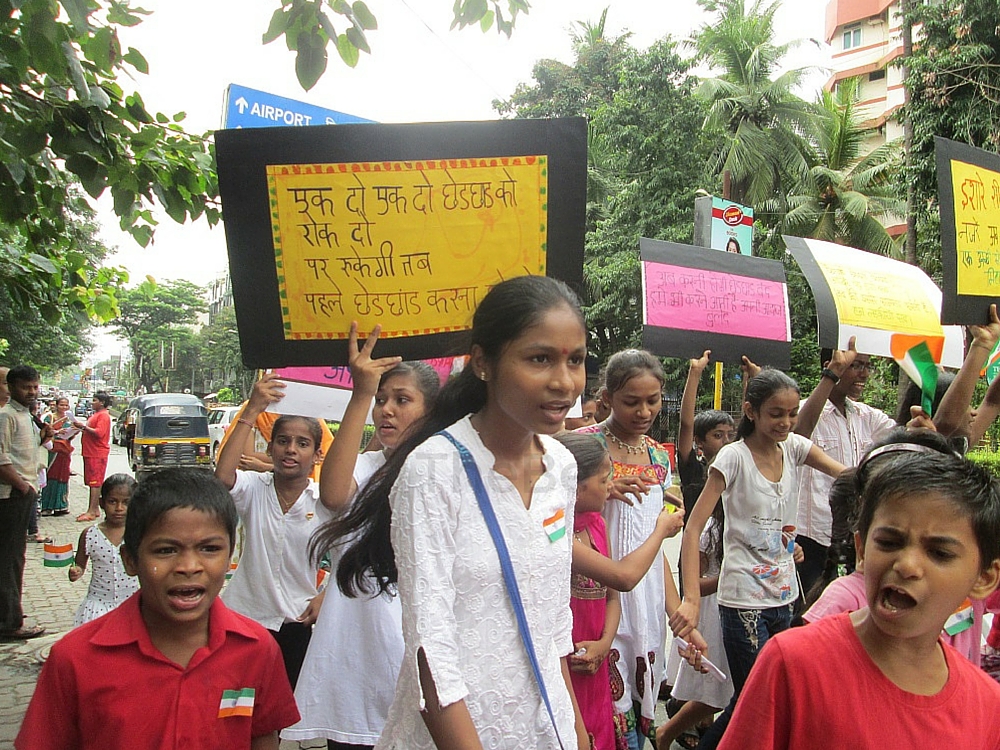
It is this self-confidence that is Vacha’s greatest achievement. Consider the environment these girls live in. Doing housework is a given for them. So is being treated as an inferior. In one family documented in Vacha’s book, Experiencing Girlhood – Stories from Bastis in Mumbai, only the father and brother got to eat good quality rice.
In ‘Bole Kishori’, a compilation of creative writing, essays, art, photographs and cartoon strips by adolescent girls, one of them asks: “Is Chyavanprash (an expensive ayurvedic tonic) only for boys?” Restrictions on going out of the house, on talking, laughing loudly, and even relieving themselves, are also a given. So, Vacha decided to open centres in slums where they live in order to provide them with a place other than their school or coaching class – the only two places they were permitted to go. While the first centre came up in 2005 in Baandh, near the fishing village of Khar-Danda, today, there are centres in 15 bastis, including three in rural Kalyan-Dombivli, home to new migrant labour on the outskirts of Mumbai, and two in Valsad, Gujarat.
To get parents to allow their daughters to come to them, Vacha started by offering to teach ‘useful’ skills like English and computers. For the girls, that became the gateway to a new world, even if it was one within the basti – a world that allowed them to understand the forces that controlled their lives.
While talking to these girls, what comes across is their joie de vivre and the way they speak their mind. They resent not being allowed the privileges their brothers enjoy. Seema can come to the centre only because her disapproving brother is either out or asleep at that time. Ayesha recounts how her brother is made to wash dishes only as a punishment for being naughty. He often promises her Rs. 5 for doing the chore for him, but even before she can agree, her mother tells her to do it for the “poor boy”.
To this, pat comes Ramya’s sarcastic question, “What is boys’ work then, to sleep?”

A group of Muslim girls groan at having to cover their heads. Some confess they do so only when they leave home; others find it easier to wear a scarf clasped under the chin though they hate it during the summer; some have got so used to wearing the dupatta that they now feel awkward without it. But given a choice, it’s obvious they would wear neither scarf nor dupatta, but live in jeans – “like boys do”.
The changes Vacha has wrought in them are not lost to their families. The girls laughingly recount their mothers’ complaints that their voices nowadays are so loud, they can be heard from across the street; that whereas earlier, they would silently obey, they refuse to lift their brothers’ dirty dishes now. Perhaps the biggest change has come in their attitude to going ‘home’ to the village. They still love the open spaces, but hate the attitudes.
“Villages are full of grumpy old men,” says one. “Talk nicely to anyone there, and the next thing you know they land up with a proposal,” remarks another, who emphatically says that if her parents try to “marry me off before I’m 18, I’ll call the police”.
Usually when girls reach Class Eight, which sees the onset of menstruation, their families tend to send them back to the ‘safety’ of villages, or at least withdraw them from Vacha.
Those who’ve managed to stay on, notes Namjoshi, have completed school, and consequently, acquired a greater say in their homes, greater mobility, and in some cases, shown incredible qualities of leadership.
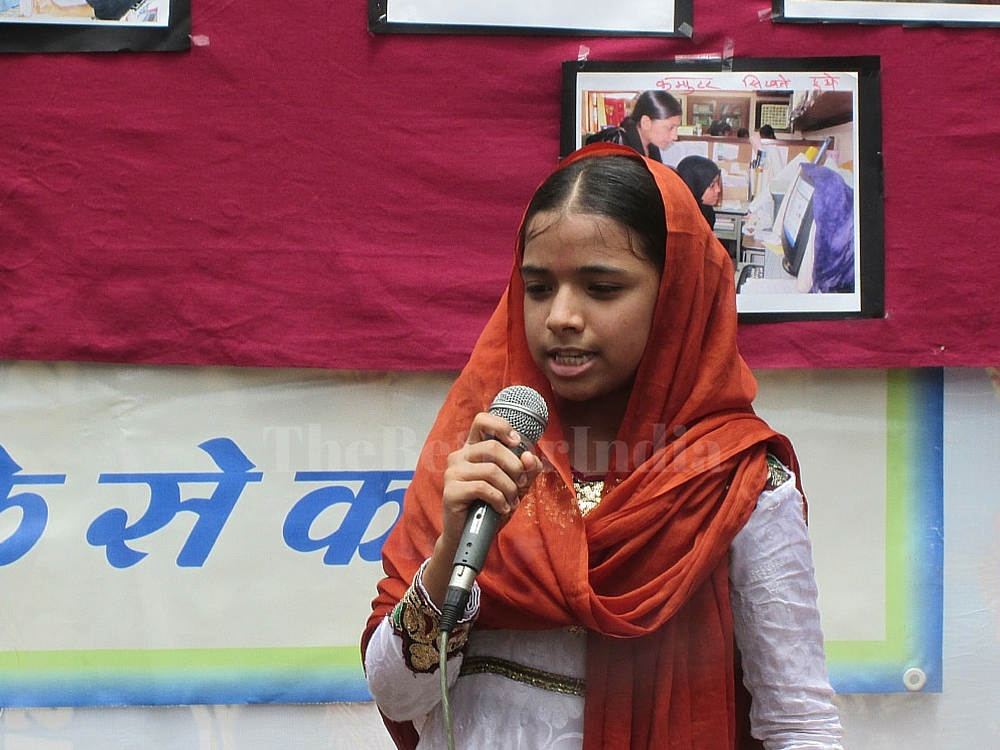
Has there been a backlash against Vacha in the slums? Surprisingly, no. For, the girls’ new-found cockiness has also benefited the community. Thanks to Vacha’s field trips, they aren’t afraid to complain to the municipal office about garbage not being cleared (it gets done, too!); to insist that ration shops stick to rules and keep complaint books; to inform their basti about facilities available at the nearest public hospital.
Incidentally, boys also come to Vacha centres. “Boys are privileged, but also vulnerable and deprived,” observes Shukla. And their inclusion has been worthwhile: one ten-year-old prevented the marriage of his 15-year-old sister; another, after seeing a street play on eve-teasing, apologised in front of everyone, saying, “I had never thought our teasing resulted in girls having to take a long route home to avoid us.”
Working with ‘bal-kishoris’, as Vacha calls the girls, is not its only project. It has also documented the lives of female freedom fighters, produced lively handbooks on health for girls and albums of feminist garbas; and conducts gender sensitisation workshops for municipal school teachers.
Sonal Shukla is among the early pioneers of Mumbai’s feminist movement that grew out of the anger around the 1979 Mathura rape judgment. Like all feminists, she too wants to change the world. Vacha is doing that.
(Names of all girls have been changed to protect their identity.)
Like this story? Have something to share? Email: [email protected], or join us on Facebook and Twitter (@thebetterindia). To get positive news on WhatsApp, just send ‘Start’ to 090 2900 3600 via WhatsApp.
If you found our stories insightful, informative, or even just enjoyable, we invite you to consider making a voluntary payment to support the work we do at The Better India. Your contribution helps us continue producing quality content that educates, inspires, and drives positive change.
Choose one of the payment options below for your contribution-
By paying for the stories you value, you directly contribute to sustaining our efforts focused on making a difference in the world. Together, let's ensure that impactful stories continue to be told and shared, enriching lives and communities alike.
Thank you for your support. Here are some frequently asked questions you might find helpful to know why you are contributing?


This story made me
-
97
-
121
-
89
-
167




